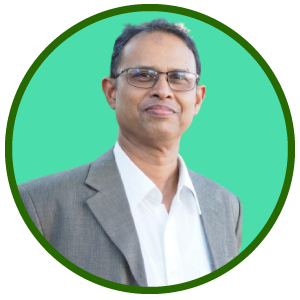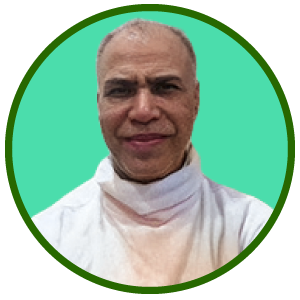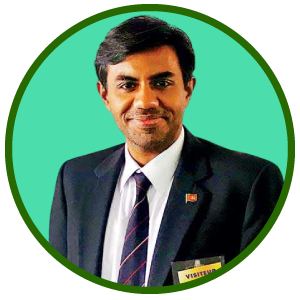Session 1: Harmony or Discord Addressing Intergenerational Tensions in Modern Society
Intergenerational conflicts are rising as societies face diverging needs and values between older and younger generations. These conflicts often involve issues related to resource allocation, differing perspectives, and balancing human rights and security for all adults. This session will examine the root causes of these conflicts and explore strategies for fostering harmony. We will discuss ways to address human rights and security concerns for both age groups and identify solutions to mitigate discord and promote mutual understanding.Read More!
Discussion Questions:
- What are the primary causes of intergenerational conflicts, and how do differing values and resource allocations contribute to these tensions?
- How do shifting cultural values regarding work, family, and social responsibility contribute to intergenerational discord, and can these shifts be reconciled?
- Do current social and economic policies inherently favor one generation over another, and how can this imbalance be corrected without causing additional conflict?
- How can societies balance human rights and security for adults across different age groups to address intergenerational conflicts effectively?
What strategies and solutions can be implemented to foster better understanding and cooperation between generations, and how can these approaches be practically applied in modern society?
Moderator:

Prof. Dr. Mokbul Morshed Ahmad,
Professor in Development Planning Management and Innovation, School of Environment, Resources and Development, Asian Institute of Technology
Speakers:

Important points:
- Understanding and Defining Ageism:
Ageism manifests in three forms—interpersonal, institutional, and internalized. It includes negative stereotypes and discrimination against older (and sometimes younger) people and is often unconscious or unacknowledged. - The “Age Without Limits” Campaign:
This UK-wide campaign engages the public to notice, challenge, and change ageist attitudes. It began with raising awareness and evolved to showcasing personal stories and offering tools to empower individuals to combat ageism. - Impact on Health and Employment:
Ageism affects employment opportunities (e.g., assumptions about older workers’ abilities) and healthcare (e.g., fewer treatment options or referrals for older adults). These attitudes can reduce quality of life and limit access to services. - Promoting Age-Inclusive Workplaces:
Initiatives like the Age-Friendly employer pledge encourage organizations to adopt practices that attract, support, and retain older employees through inclusive policies. - Changing Representation in Media:
A free image library was created to challenge stereotypical portrayals of older people (e.g., always using images of walking sticks and wrinkles), offering more diverse and positive imagery.
1. Dr. Carole Easton,
Chief Executive of Centre for Ageing Better, England

Important points:
- Educational Spaces as Multigenerational Environments:
Schools and universities host multiple generations—Baby Boomers to Gen Z—who differ in communication styles, values, and expectations. These cultural clashes can lead to tensions unless proactively addressed. - Intercultural Competence in Education:
Viewing generational divides through an intercultural lens enables educators to manage conflicts, foster empathy, and bridge misunderstandings. Intercultural dialogue and training should be part of professional development. - Real-World Conflict Resolution Example:
A generational conflict at her previous university was resolved through a structured workshop that promoted mutual understanding and led to collaborative curriculum redesign, blending traditional and tech-driven methods. - Intergenerational Learning Project (Turkey):
A project where grandparents and grandchildren learned from each other (e.g., crafts vs. digital tools) led to stronger emotional bonds, empathy, and mutual respect—illustrating that age can be a bridge, not a barrier. - Institutional Policies Must Adapt:
Educational leadership should revise outdated policies, adopt inclusive leadership models, and implement bidirectional mentoring (where younger staff share tech skills, and older staff share strategic insights).
2. Assoc. Prof. Gizem Günçavdı-Alabay, PhD.,
Associated Professor at Bursa Uludağ University, Turkey

Important points:
- Loss of Interdependence and Community:
In the past, elders cared for strangers as kin, but today’s individualistic lifestyles prioritize self and close circles. He calls for the revival of compassion, hospitality, and community responsibility. - Disconnect Between Education and Humanity:
Despite widespread education, many graduates lack empathy or civic duty. Bureaucratic corruption and self-interest among educated elites hinder development and deepen mistrust across generations. - Need for Moral and Institutional Reform:
True reform starts from within individuals, not just institutional changes. Educational curricula should foster compassion, community-mindedness, and respect beyond religious, ethnic, or national lines. - Rebuilding Solidarity Through Action:
He urges individuals to look beyond their own households to help others (e.g., food insecurity, housing crises) and revitalize traditions of collective care, especially during life events like marriage or hardship.
3. Mr. M. Abdus Sabur,
Co-Director of International Institute of Peace and Development Studies, Secretary General of Asian Resource Foundation

Important points:
- Loss of Interdependence and Community:
In the past, elders cared for strangers as kin, but today’s individualistic lifestyles prioritize self and close circles. He calls for the revival of compassion, hospitality, and community responsibility. - Disconnect Between Education and Humanity:
Despite widespread education, many graduates lack empathy or civic duty. Bureaucratic corruption and self-interest among educated elites hinder development and deepen mistrust across generations. - Need for Moral and Institutional Reform:
True reform starts from within individuals, not just institutional changes. Educational curricula should foster compassion, community-mindedness, and respect beyond religious, ethnic, or national lines. - Rebuilding Solidarity Through Action:
He urges individuals to look beyond their own households to help others (e.g., food insecurity, housing crises) and revitalize traditions of collective care, especially during life events like marriage or hardship.
4. Prof. Asanga Abeyagoonasekera,
Senior Fellow and Executive Director, South Asia Foresight Network (SAFN) at The Millennium Project, Washington DC., the US
